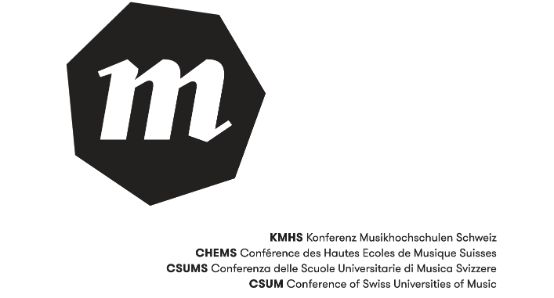Research at the Geneva University of Music
This edition aims to provide regular information on the research activities of the various universities of music. It gives a vision of the different universities, but also a global vision of research in general. Rémy Campos, from the HEM, presents the research in Geneva to us.

Matthias von Orelli - Rémy Campos has been research coordinator at the Geneva University of Music since 2003. His research has focused on the rediscovery of ancient music, on conservatories and on questions of historiography. He is currently working on the history of musical practices in the 19th and 20th centuries.
Rémy Campos, in a few words, how would you describe the history of research at the HEM?
The Geneva research unit was founded 15 years ago, and it was really modest at the time: the team was only employed part-time. Today, our budget exceeds one million Swiss francs, which is an impressive development in 15 years. With the completion of numerous projects and the conclusion of partnerships, research at the HEM has evolved to become a center of expertise.
According to you, what are the main missions of research in Geneva, and what are the current research topics?
Since its inception, Geneva has focused on applied research projects on a wide range of artistic practice areas: new creation and new technologies, historical interpretation, art and science, intercultural dialogue and musical education.
The research projects are launched by professors who teach in Geneva and Neuchâtel, so the field is very broad. In addition, experience within the school, particularly in contemporary and ancient music, also plays an essential role.
The intense activity in the field of research also goes far beyond the HEM. The other schools in the field of music and visual arts - the Lausanne School of Music (HEMU) and La Manufacture à Lausanne - joined forces a few years ago to create a research institute (IRMAS).
Quelles sont vos responsabilités ?
I have two jobs: I am research coordinator at the Geneva School of Music and in this capacity I take care of all the requests concerning the research unit. This includes the conception and dissemination of projects as well as the realization of documentaries, the publication of books, CDs and DVDs for the general public.
I am also responsible for IRMAS. The Institut de recherche Musique et Arts de la Scène regroupe les trois écoles du domaine. Its aim is to promote the quality of research and development activities by encouraging exchanges between the researchers it hosts and increasing the visibility of research projects among specialists and the general public alike. The Institute also ensures the evaluation of research projects in the field of music and performing arts.
In your opinion, what is the greatest success of research at the HEM?
I think that we have come a long way with limited resources, as our history also shows. We are now producing high-quality professional work. Many people have contributed individually to the success of each project.
Quelle est l'importance de la recherche à la HEM pour vous ?
I think that the introduction of research a few years ago was a minor revolution in the world of art schools. Although it was initially perceived as an exception to the usual artistic activities, it is now accepted that it brings a lot to schools in all kinds of fields.
Y a-t-il des différences entre la musicologie classique et la recherche dans une haute école de musique ?
From the outset, we have sought to conduct musical research that complements what musicology has been doing for a long time. In addition, we are working on very specific projects that focus mainly on practical issues. However, collaboration with musicology is essential for us. The research practiced in the high schools is also different because it is not limited to written publications. CDs, DVDs and radio broadcasts do justice to projects that put practice first.
What is the potential for you of a close relationship between research and practice?
Well, we are a professional institute that is involved in various projects and everyone works within the framework of their specialty. Some of our assistants studied at the HEM and are thus integrated into a professional environment.
Do you think there are still things to be done in the field of research at the HEM?
Of course! Concerning the HEM, I can say that many teachers and students have participated in the research over the last 15 years, but many have not (yet) done so.
Vous multipliez les coopérations...
Yes, absolutely, and on all continents. We have strong ties to Japan and China, not to mention projects with artists, some of whom are first-rate personalities, and with schools in India, Canada and the Latin America. And, of course, throughout Switzerland.
We are currently conducting a major survey of our former students to determine the impact of their training on their professional environment. This work, seems to me, a good example of what research can bring to a high school: a better knowledge of the professional environment with tools different from those used by artists in their daily work.








